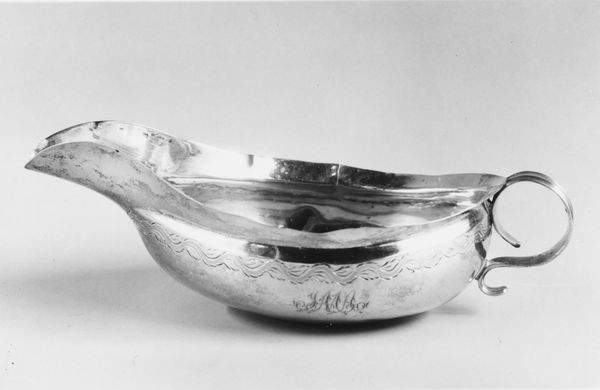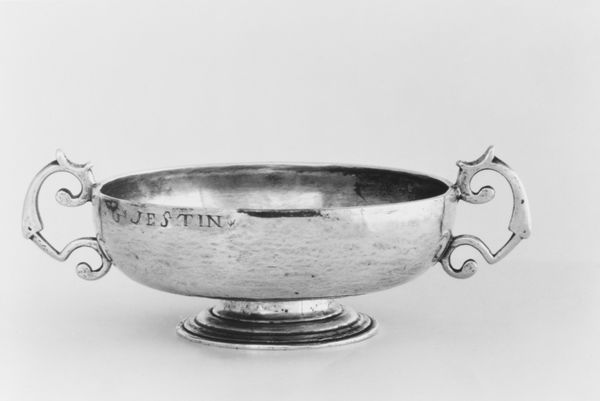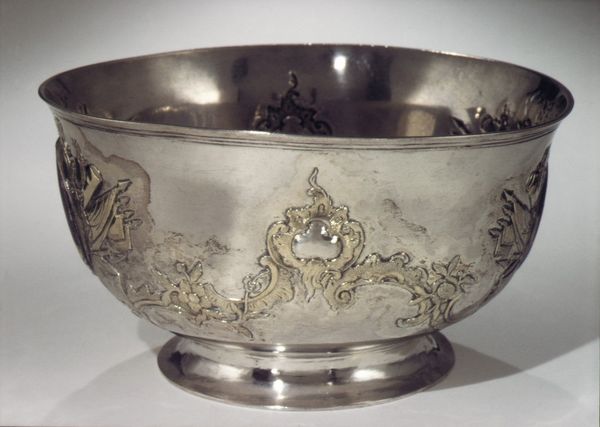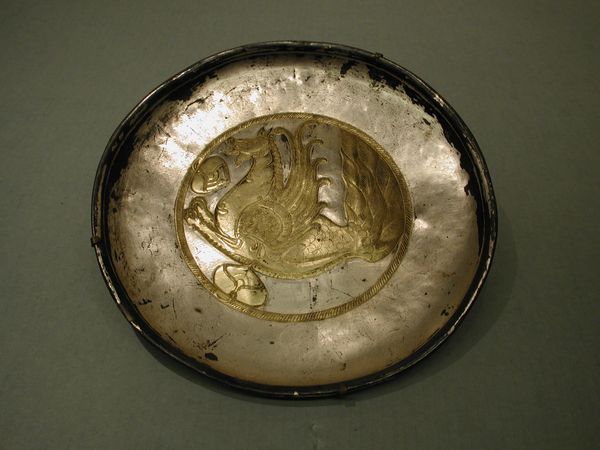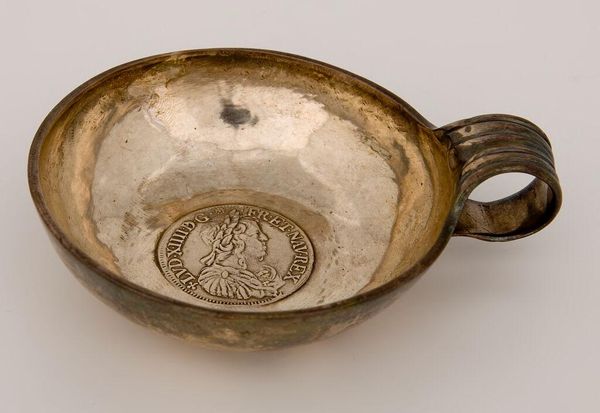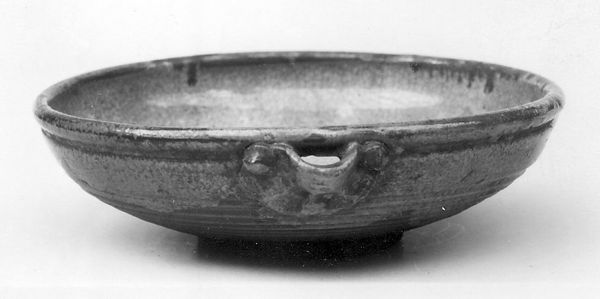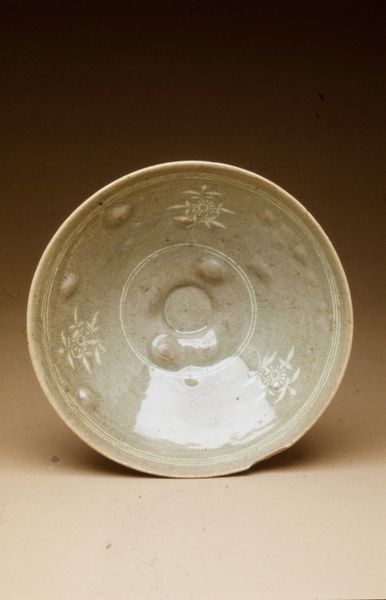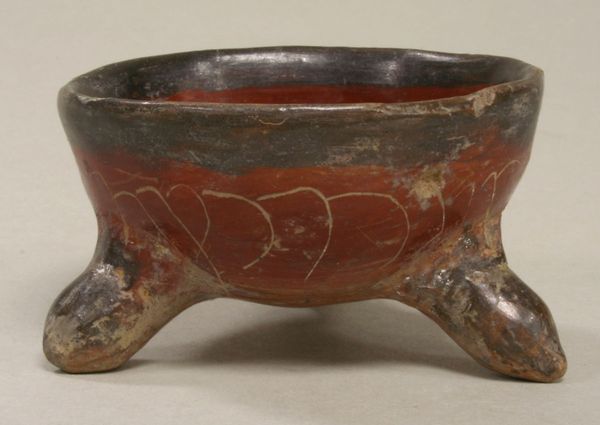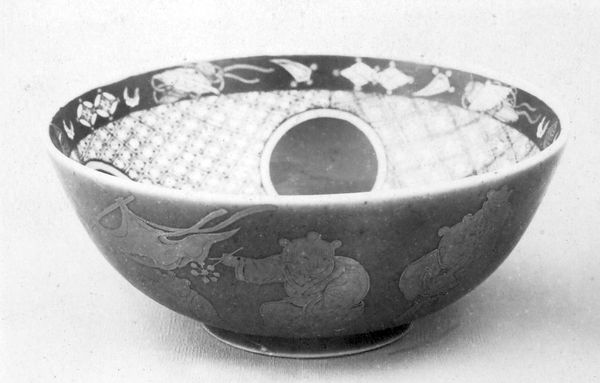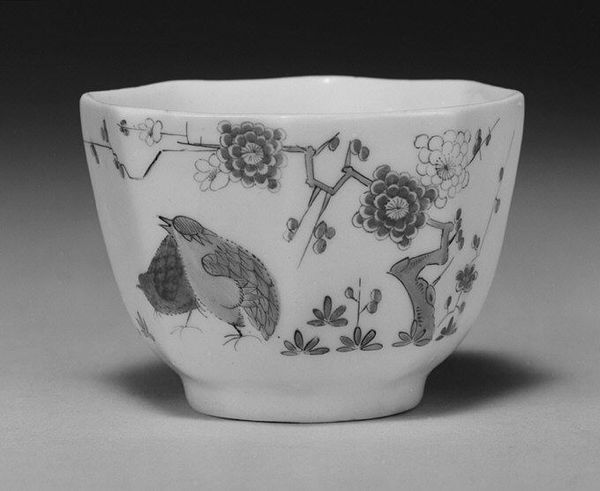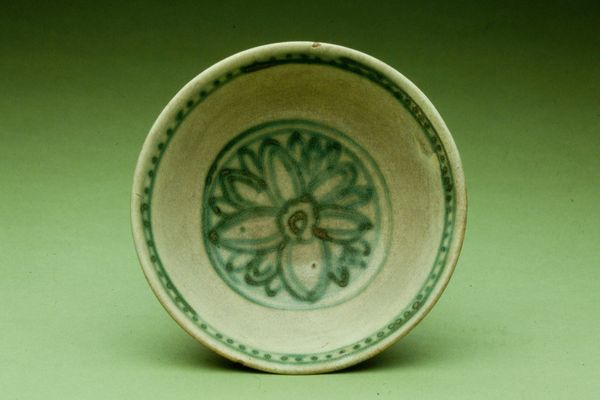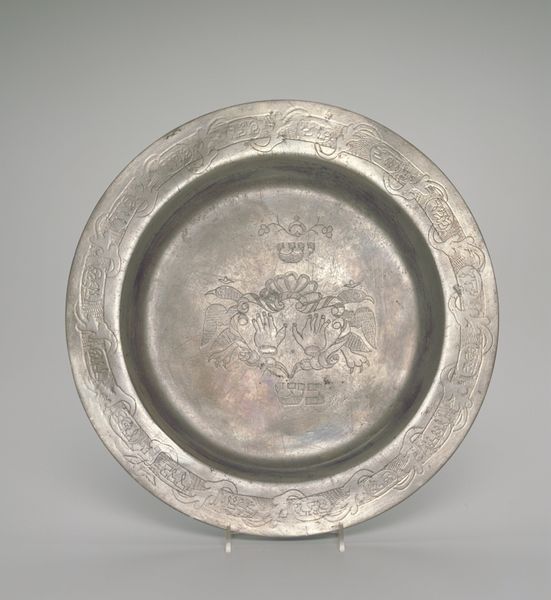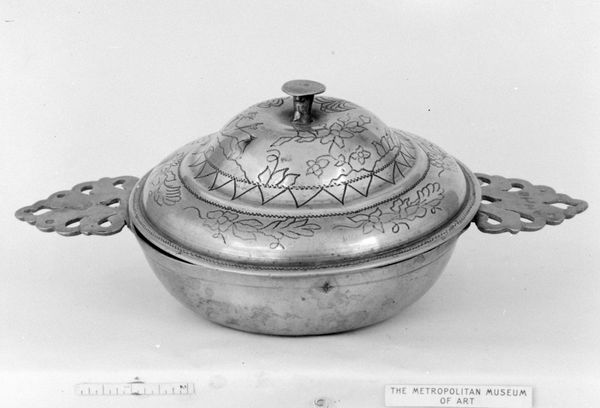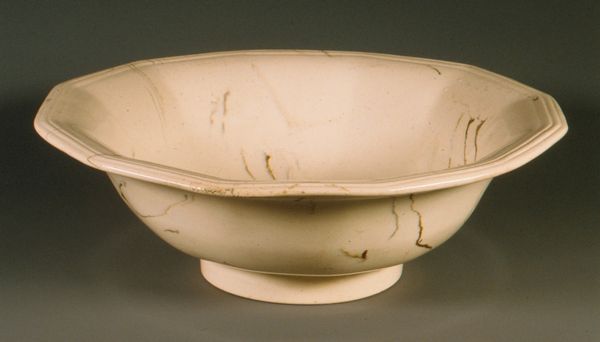
Two Handled Glass Bowl. From a Grave on the Island of Siphnos 50 BC
0:00
0:00
ancientgreekpottery
National Archaeological Museum, Athens, Greece
ceramic, glass
#
sculpture
#
greek-and-roman-art
#
landscape
#
ceramic
#
figuration
#
glass
#
geometric
#
ancient-mediterranean
#
ceramic
#
miniature
Copyright: Public domain
Curator: This delicate glass bowl, crafted around 50 BC, was unearthed from a grave on the island of Siphnos. Look closely, and you can see the intricate, almost ghostly designs etched into the glass. Editor: It has such a fragile presence. The faint images give it an ethereal feel, like glimpsing a memory. And those images! A horse, a rider, and a serpent–it’s a miniature world contained in glass. Curator: Absolutely. The process of creating such a piece, likely through mold-blowing and then painstakingly engraving these details, speaks to incredible skill. We must also consider the socio-economic status of the person buried with it. Glassware, especially of this quality, would have been a luxury item, reflecting status and perhaps specific beliefs about the afterlife. Editor: The serpent particularly captures my imagination. It coils around the bowl in a way that evokes both danger and protection. In ancient Greek symbology, the serpent had varied meanings – healing, rebirth, but also chaos. It would be intriguing to know why this symbolic figure was specifically chosen. The rider and horse—they add an interesting dimension too. A horse, of course, suggests status, but the small rider implies power on a small scale, or the triumph over such powerful beasts. Curator: I think your reading of the serpent’s duality is insightful. And seeing as this was found in a grave, we can likely add funerary symbolism to that complexity. However, it is not just about abstract readings. The craftsmanship matters—the specific type of glass, its origin. Studying these materials offers a tactile connection to the artisan’s world, offering insight to their technical knowledge and trade networks operating then. Editor: It's a dance between the practical and the symbolic, isn’t it? Thinking about who commissioned the bowl, and the artisan’s hands carefully shaping and etching, gives this delicate bowl a remarkable emotional weight. What stories could this small bowl tell? Curator: Indeed. It’s an artifact that reminds us of the intricate links between the material world, cultural symbols, and human belief in a past society. Editor: I’ll remember the emotional weight and imagery carried by the craftsmanship itself, reflecting continuity of artistic knowledge from artisan to artisan across centuries.
Comments
No comments
Be the first to comment and join the conversation on the ultimate creative platform.
